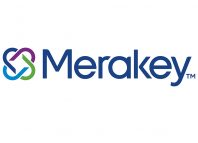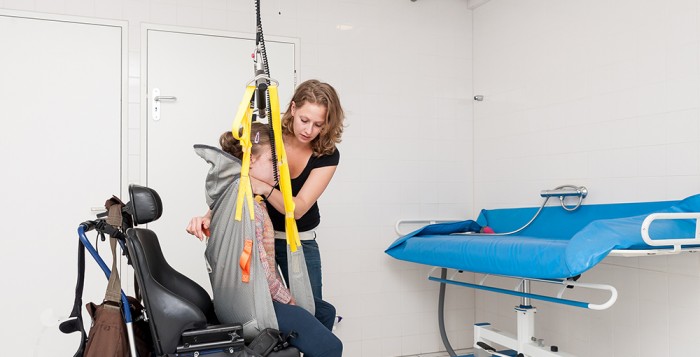On July 31, 2017, the Centers for Medicare and Medicaid Services (CMS) released the fiscal year (FY) 2018 inpatient rehabilitation facility prospective payment system (IRF PPS) final rule. Some of the key provisions contained in the final rule include:
Updates to IRF Payment Rates
Update to the Standard Payment Rates
CMS finalized an update to the IRF PPS payments to reflect a 1.0 percent increase factor, in accordance with section 1886(j)(3)(C)(iii) of the Social Security Act, as added by section 411(b) of the Medicare Access and CHIP Reauthorization Act of 2015 (MACRA). An additional approximate 0.1 percent decrease to aggregate payments due to updating the outlier threshold results in an overall estimated update for FY 2018 of approximately 0.9 percent (or $75 million), relative to payments in FY 2017.
Update to CMG Weights, Lengths of Stay and Comorbidities
CMS updated the Case Mix Group (CMG) weights based on FY 2015 IRF cost report data and the FY 2016 IRF claims data, as well as the average lengths of stay (ALOS) per CMG. The final rule estimates 99.3 percent of all IRF cases are in CMGs and tiers that would experience less than a five percent change in the CMG relative weight under their proposal.
Rural Adjustment Transition
FY 2018 is the third and final year of the phase-out of the 14.9 percent rural adjustment for the 20 IRF providers that were designated as rural in FY 2015 and changed to urban under the new Office of Management and Budget (OMB) delineations in FY 2016. As a result, the rural adjustment for these IRF’s will no longer be applied.
ICD-10-CM Presumptive Compliance Coding Changes
CMS made refinements to the ICD-10-CM lists used in determining IRFs’ presumptive compliance with the 60 Percent Rule. The complete lists of the adopted code revisions are available for download on the IRF Data Files website. CMS notes that the version of these finalized lists will constitute the baseline for any future updates to the presumptive methodology lists. The changes will be effective for discharges on or after October 1, 2017. CMS adopted only those coding changes that will increase the number of cases counting toward presumptive compliance and did not adopt any changes that would remove codes from counting toward the presumptive compliance threshold. CMS also stated that since it is not making any negative changes, it would consider the comments it received on the need for a delayed effective dates should any of these negative changes occur in future rulemakings.
For FY 2018, the following refinements to the ICD-10-CM lists used in determining IRFs’ presumptive compliance to ensure that these lists reflect as accurately as possible the types of patients that should count presumptively toward the 60 percent rule were finalized by:
- Counting certain ICD-10-CM diagnosis codes for patients with traumatic brain injury and hip fracture conditions; and
- Revising the presumptive methodology list for major multiple trauma by counting IRF cases that contain two or more of the ICD-10-CM codes from three major multiple trauma lists in the specified combinations.
CMS did not finalize the proposal to remove certain ICD-10-CM codes from the presumptive methodology at this time indicating they would continue to monitor and consider their appropriateness for inclusion on the presumptive methodology lists for future policy development and rulemaking.
Other Policy Changes
CMS proposed several changes for the purposes of eliminating redundancies and simplifying administrative burden for providers and for the agency and finalized the following:
- Remove the 25 percent payment penalty for late submissions of the IRF PAI beginning October 1, 2017;
- Remove the voluntary swallowing assessment item (Item 27) in the IRF PAI beginning October 1, 2017; and
- Use the height/weight items on the IRF PAI (items 25A and 26A) to determine patients’ BMI greater than 50% for cases of lower extremity single joint replacement.
IRF Quality Reporting Program (QRP)
Under the IRF QRP, the applicable annual payment update for any IRF that does not submit the required data to CMS is reduced by 2 percentage points. In this final rule, CMS is finalizing the replacement of the current pressure ulcer measure with an updated version of that measure, as well as the removal of the All-Cause Unplanned Readmission Measure for 30 Days Post-Discharge from IRFs (NQF #2502). CMS is also finalizing the public display of six additional quality measures on the IRF Compare website in calendar year 2018.
In addition to the proposals related to quality measures and public reporting, CMS is finalizing that the data IRFs submit on the measure Percent of Residents or Patients with Pressure Ulcers That Are New or Worsened (Short Stay) (NQF #0678) meet the definition of standardized patient assessment data for the FY 2019 IRF QRP. For the FY 2020 IRF QRP, CMS is finalizing that the data IRFs submit on the measures Application of Percent of Long-Term Care Hospital Patients with an Admission and Discharge Functional Assessment and a Care Plan That Addresses Function (NQF #2631) and Changes in Skin Integrity Post-Acute Care: Pressure Ulcer/Injury meet the definition of standardized patient assessment data. However, in response to the comments received for the FY 2020 program year, CMS is not finalizing the proposed additional standardized data elements.
Request for Information
CMS also included a Request for Information (RFI) in the proposed rule for continuing feedback on the Medicare Program. Input was requested on potential regulatory, sub-regulatory, policy, practice and procedural changes to make the delivery system less bureaucratic and complex, reduce burden for clinicians and providers, and increases quality of care while decreasing cost. CMS said it would not respond to RFI comment submissions in the final rule, but rather will actively consider all input in developing future regulatory proposals or future sub-regulatory guidance. There was no response provided in the final rule.
The final rule will be published in the August 3, 2017 Federal Register, which will be sent to members upon publication.












